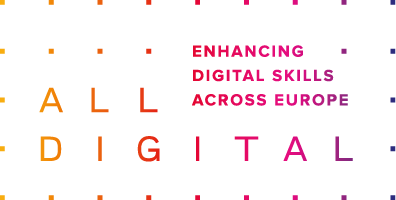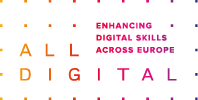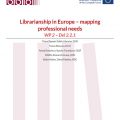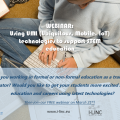18 Oct Latest technologies towards science education of youth? In UMI-Sci-Ed this is the goal!
18 Oct, 2016
By Iva Walterova
Successful development of European science and technology system depends mostly on its capacity for talent and ideas. According to the European Commission, skills in science, technology, engineering and maths (STEM) are becoming an increasingly important part of basic literacy in today’s knowledge economy. To keep Europe growing, we will need one million additional researchers by 2020. Thus, we need to put significant effort towards making STEM disciplines more attractive to young people and encouraging them to take up careers in these fields.
To this end Telecentre Europe and six partners from various disciplines working throughout Europe got together and launched a project that aims at building on kids’ natural interest and curiosity to get them interested in the STEM disciplines.
![]() UMI-Sci-Ed – Exploiting Ubiquitous Computing, Mobile Computing and the Internet of Things to Promote Science Education – was launched this summer and aims at enhancing the attractiveness of science education and careers for young people via the use of latest technologies. We put Ubiquitous and Mobile Computing and the Internet of Things (UMI) into practice towards enhancing the level of STEM education. At the same time, we are increasing the attractiveness of pursuing a career in domains pervaded by UMI for these youths. Here, technology and discovering science through technology is the means towards an end, not the end itself.
UMI-Sci-Ed – Exploiting Ubiquitous Computing, Mobile Computing and the Internet of Things to Promote Science Education – was launched this summer and aims at enhancing the attractiveness of science education and careers for young people via the use of latest technologies. We put Ubiquitous and Mobile Computing and the Internet of Things (UMI) into practice towards enhancing the level of STEM education. At the same time, we are increasing the attractiveness of pursuing a career in domains pervaded by UMI for these youths. Here, technology and discovering science through technology is the means towards an end, not the end itself.
Innovative activity within schools and communities is increasing; most of it is driven organically by small groups with a relatively narrow focus. Often the collective awareness that these activities are going on can be low, even within the community. To create a high impact in this area we look at approaches that foster cultures of innovation, investigate the drivers around successful activities and build Communities of Practice (CoPs) that can sustain related activities in the face of limited resources and high levels of turnover.
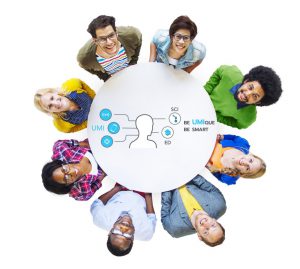 Along these lines, the project will link school, community and third-level initiatives together and foster a model that looks to strongly broaden impacts from the current cohort (e.g. students competing in STEM competitions) to the entire ‘education’ population. The project will also provide tools, particularly technology, to support this. New technology is however often rejected, so approaches where participants can help co-create the toolkit will be prioritised.
Along these lines, the project will link school, community and third-level initiatives together and foster a model that looks to strongly broaden impacts from the current cohort (e.g. students competing in STEM competitions) to the entire ‘education’ population. The project will also provide tools, particularly technology, to support this. New technology is however often rejected, so approaches where participants can help co-create the toolkit will be prioritised.
We aim at developing a fully integrated yet open training environment for 14-16-year-old students based on a selection of methodological processes and UMI applications. The training environment will consist of an open repository of educational material, educational means, training activities, a platform to support CoPs through socialization, delivery specific of educational material, entrepreneurship training, showcases, self-evaluation, mentoring, and conceptualisation of content and information management.
Telecentre Europe began working on this project in June in the role of communications manager. The project is led by Computer Technology Institute and Press “Diophantus”, a research and technology organization focusing on ICT research based in Greece. The other partners bring in expertise in science education, pedagogy, and hardware and software development.
